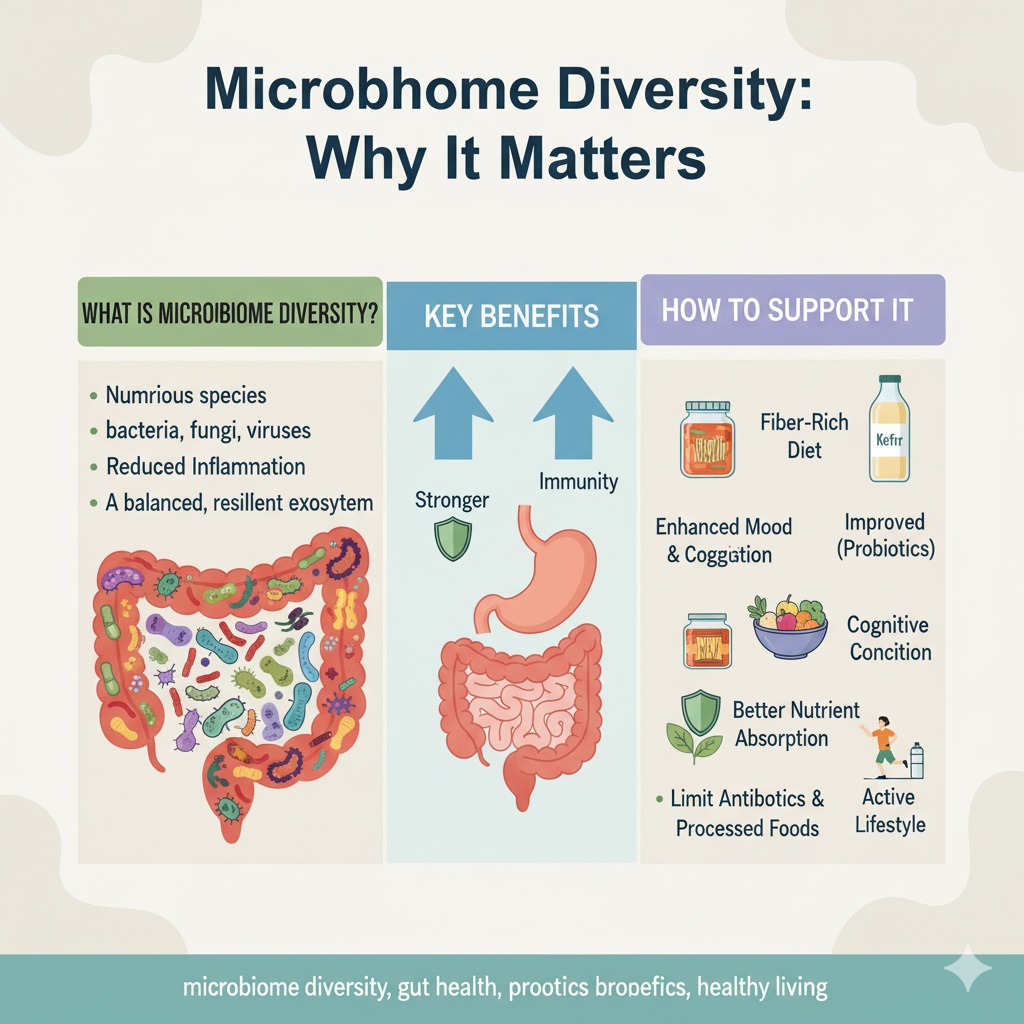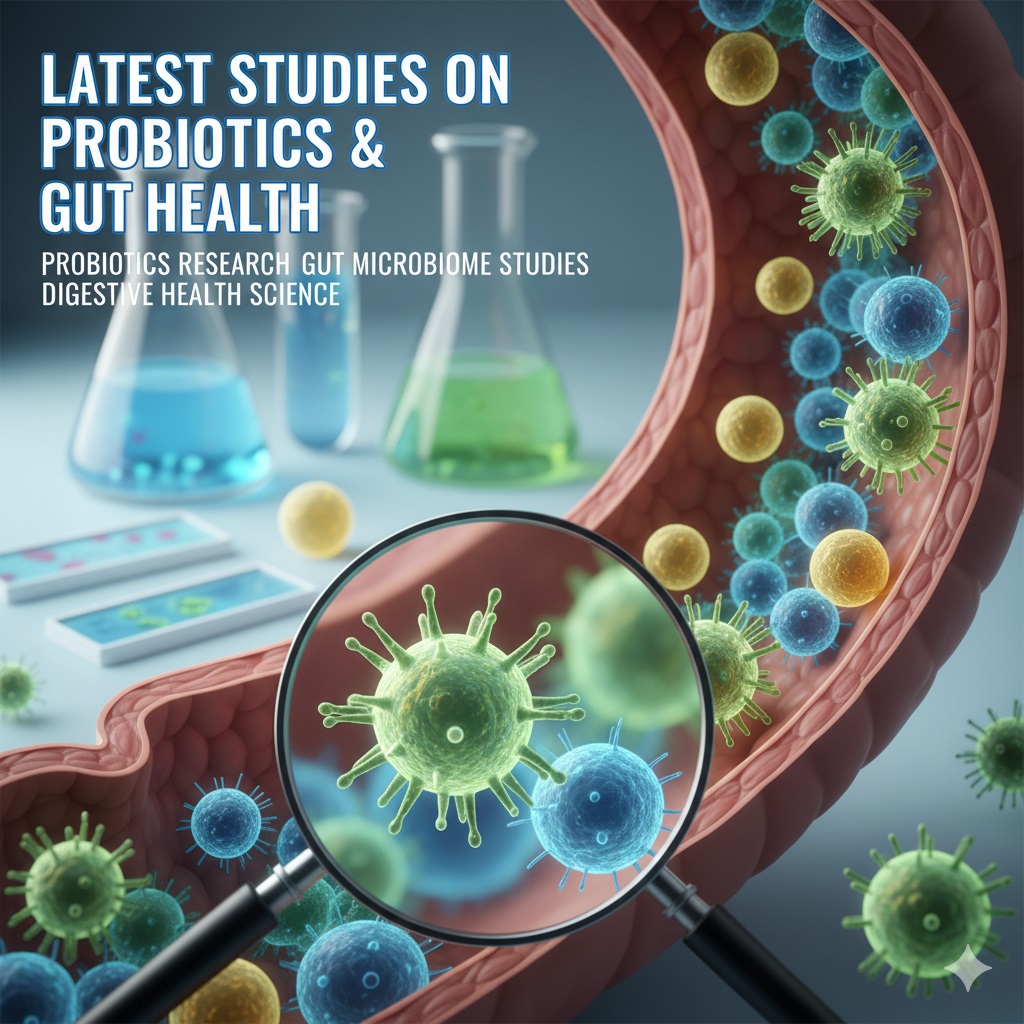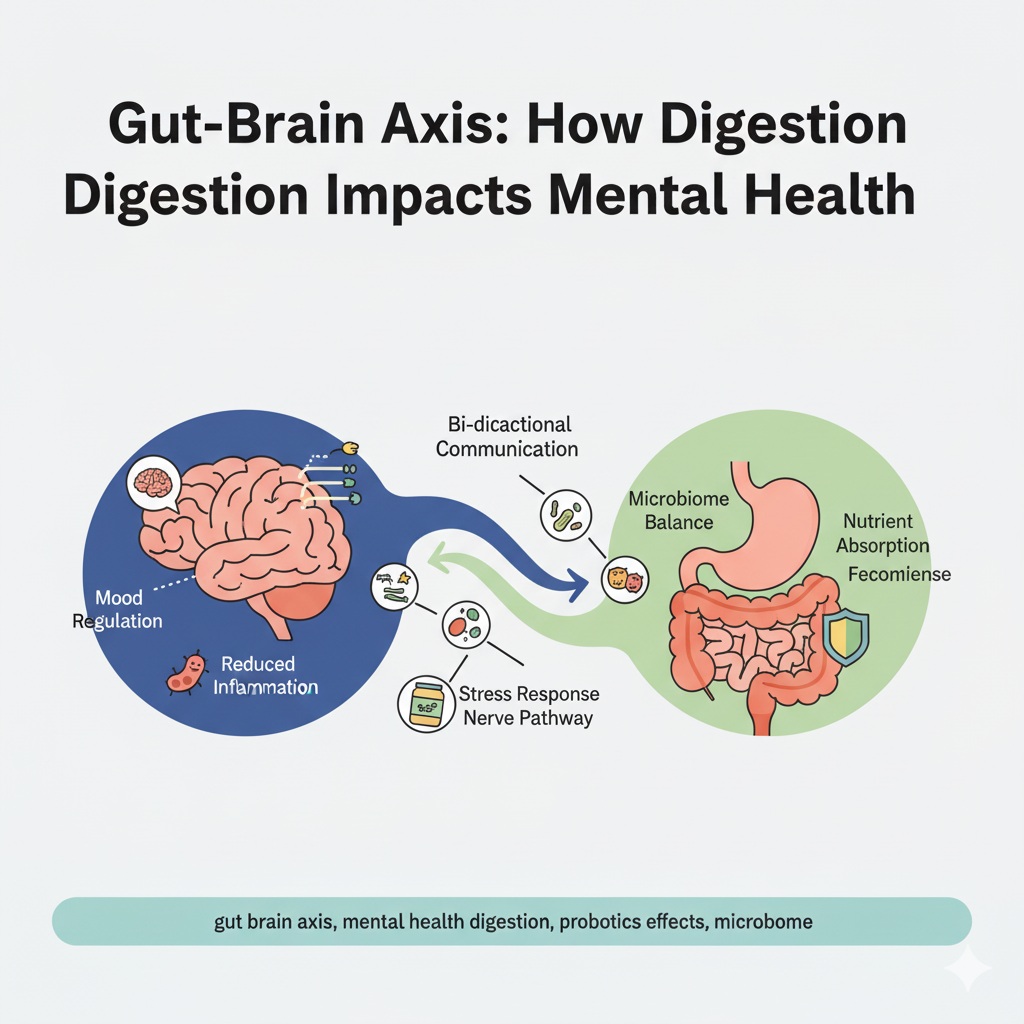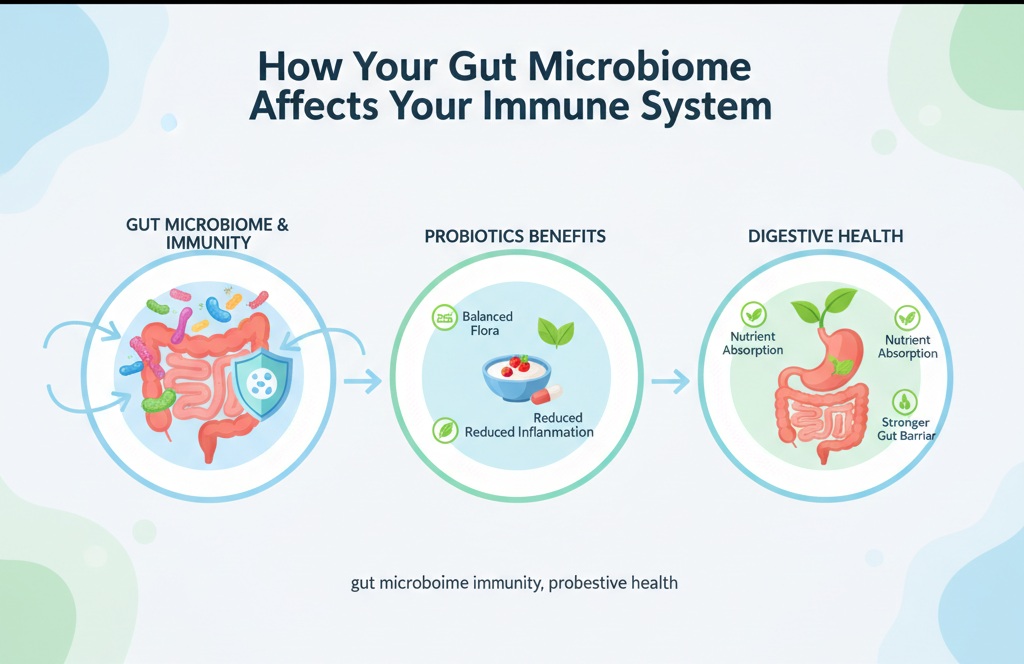New research highlights that microbiome diversity is essential for good health, influencing digestion, immunity, and even mood. Experts say that modern diets and stress can reduce microbial balance, but increasing plant-based fiber, fermented foods, and probiotics can restore a healthy gut ecosystem.
A diverse microbiome supports stronger immunity, better metabolism, and long-term wellness.
In recent years, scientists have begun to uncover an invisible world living inside us — a vast, complex ecosystem made up of trillions of microorganisms known as the gut microbiome. These bacteria, fungi, and viruses do more than just digest food; they influence everything from our immune system to our mental health.
But there’s one factor that stands out as crucial for good health: microbiome diversity.
Simply put, the more diverse your gut microbes are, the stronger and more resilient your body becomes.
Let’s explore why microbiome diversity is vital, how it affects your overall gut health, and how you can naturally increase it for long-term wellness.
1. What Is Microbiome Diversity?
Microbiome diversity refers to the variety and balance of microorganisms living in your digestive system. A healthy gut contains thousands of different bacterial species, each performing unique roles — breaking down food, regulating metabolism, and protecting against harmful invaders.
Think of your gut like a rainforest: the richer the variety of species, the more stable and resistant it is to change. When diversity drops — often due to antibiotics, poor diet, or chronic stress — your internal ecosystem becomes fragile, leaving you vulnerable to disease, inflammation, and fatigue.
2. Why Microbiome Diversity Is So Important
Science has repeatedly shown that a diverse gut microbiome is one of the strongest predictors of overall health and longevity. Here’s why:
A. Stronger Immunity
A wide range of microbes helps your immune system distinguish between friendly and harmful substances. When your gut is balanced, your body is better equipped to fight infections without overreacting — reducing the risk of autoimmune conditions and chronic inflammation.
B. Better Digestion and Nutrient Absorption
Different bacterial species specialize in breaking down various foods. More diversity means you can digest fiber, fats, and proteins efficiently while producing beneficial compounds like short-chain fatty acids (SCFAs) that fuel your intestinal cells.
C. Balanced Weight and Metabolism
Research suggests that people with higher microbiome diversity tend to have healthier body weights and more stable blood sugar levels. Gut bacteria play a big role in regulating appetite hormones and fat storage.
D. Improved Mood and Brain Function
Through the gut-brain axis, gut bacteria produce neurotransmitters such as serotonin and dopamine. A diverse microbiome supports emotional stability, reduces anxiety, and sharpens focus.
E. Protection Against Disease
Low microbial diversity has been linked to conditions like diabetes, obesity, allergies, and even depression. Maintaining variety may lower the risk of these chronic illnesses.
3. How Modern Life Reduces Microbiome Diversity
Despite how essential it is, modern lifestyles often work against our microbial health.
Here are the top diversity killers:
- Overuse of antibiotics — wipes out good and bad bacteria alike.
- Highly processed foods — low in fiber, high in sugar and additives.
- Chronic stress — alters gut motility and microbial balance.
- Lack of sleep — disrupts bacterial rhythms and regeneration.
- Limited diet variety — eating the same foods daily starves certain microbes.
Over time, these habits shrink the population of beneficial bacteria and allow harmful strains to dominate.
4. How to Boost Your Microbiome Diversity Naturally
The good news? You can rebuild your gut ecosystem with consistent, simple changes.
A. Eat a Rainbow of Plant-Based Foods
Fiber is the lifeblood of your microbiome. Each type of fiber feeds different bacteria, so variety is key.
Include fruits, vegetables, legumes, nuts, and whole grains of all colors — from leafy greens to purple sweet potatoes.
B. Add Fermented Foods
Fermented foods are natural sources of probiotics that introduce live beneficial bacteria into your gut.
Try yogurt, kefir, kimchi, sauerkraut, kombucha, and miso for daily probiotics benefits.
C. Include Prebiotic Fibers
Prebiotics are the “food” for good bacteria. Foods rich in prebiotics include garlic, onions, oats, bananas, and asparagus. Combining them with probiotics creates a powerful synbiotic effect.
D. Limit Processed Foods and Sugar
Refined carbohydrates and artificial additives can encourage the growth of harmful bacteria. Opt for whole, minimally processed meals whenever possible.
E. Spend Time Outdoors
Surprisingly, spending time in nature can increase microbial exposure — contact with soil, plants, and fresh air introduces beneficial microbes to your system.
F. Manage Stress and Sleep Well
Stress and poor sleep disturb gut function. Meditation, yoga, and regular sleep schedules can help your microbiome recover naturally.
5. The Role of Probiotics in Supporting Diversity
While diet is the foundation, probiotic supplements can give your microbiome an extra boost — especially after illness or antibiotic use.
Probiotics Benefits Include:
- Rebalancing gut flora after disruptions
- Reducing inflammation
- Supporting digestion and nutrient absorption
- Enhancing immune function
- Improving mood and mental clarity
Look for multi-strain probiotics containing species such as Lactobacillus acidophilus, Bifidobacterium longum, and Lactobacillus rhamnosus. These work synergistically to restore microbial balance and encourage diversity.
6. Microbiome Diversity Across the World
One of the most fascinating discoveries in gut research is how geography and culture influence microbiome composition.
Studies show that people in rural or indigenous communities — who eat natural, fiber-rich diets and live close to nature — have much greater microbiome diversity than those in industrialized countries.
This difference correlates with lower rates of allergies, autoimmune disorders, and metabolic diseases. It’s proof that returning to traditional, unprocessed diets benefits not just digestion but total health.
7. Future Research: The Microbiome Revolution
Microbiome science is one of the fastest-growing fields in medicine today. Researchers are exploring how microbial diversity can influence:
- Mental health and mood disorders
- Autoimmune disease management
- Cancer prevention
- Longevity and aging
Future therapies may include personalized probiotics, dietary programs, or even microbiome transplants designed to restore lost diversity. The potential is enormous — and it all starts in the gut.
8. A Simple Daily Routine for a Diverse Gut
Want to get started today? Follow this easy routine to support your microbiome:
- Eat at least 25–30 grams of fiber daily.
- Add one fermented food to each meal.
- Choose whole foods over processed snacks.
- Move your body — even walking helps digestion.
- Sleep 7–8 hours per night.
- Drink plenty of water to keep digestion smooth.
Consistency is the key — your microbiome thrives on routine nourishment.
Conclusion: Diversity Equals Resilience
Your gut microbiome is like a miniature ecosystem, and diversity is its lifeblood.
When your gut hosts a wide range of beneficial microbes, you enjoy better digestion, stronger immunity, balanced mood, and long-term vitality.
By embracing a varied diet, adding probiotic-rich foods, and supporting gut health daily, you’re not just feeding your microbes — you’re investing in your future self.
Because when your gut thrives, you thrive.




